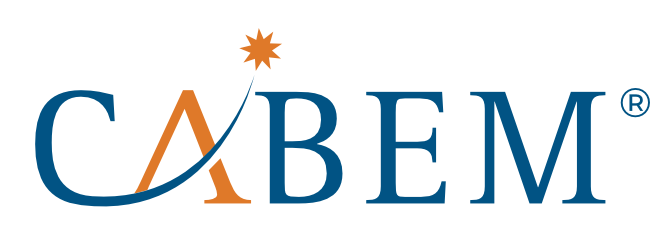While technical skills are very important to employee success, this is not sufficient to have a fully competent workforce and organization. The skills to operate heavy machinery or medical equipment for example are important, but research shows they aren’t the only skills needed to help your business thrive. Soft skills are a necessity for today’s workers, and as a business owner or manager, you must find a way to standardize those soft skills as core competencies within the company.
What Are Soft Skills?
Soft skills are personal attributes – like time management, ability to collaborate, and strong communication – that usually determine how well you work with a team and your ability to lead. These differ from technical or hard skills such as web development, accounting, or anything that requires a degree or certification.

Importance of Soft Skills in the Future
A survey conducted by Morning Consult for Cengage, an educational technology and services company, found the most in-demand talent among employers was listening skills, with 74 percent of employers desiring this skill. Attention to detail was a close second, (70 percent) and effective communication (69 percent) rounded out the top three. These are all soft skills that can apply to any industry.
The World Economic Forum Future of Jobs report revealed that in order to keep up with changing technology in the workforce, some of the most important skills to future proof an organization include:
- Problem-solving
- Critical thinking
- Creativity
- People Management
- Emotional Intelligence
The challenge for employers is it’s extremely difficult to test for, or quantify a candidate’s soft skills, either before hiring or after. Incorporating soft skills training as core competencies into your companys’ learning program increases the likelihood that these skills can be taught effectively and adopted by employees company-wide.
The Most Desirable Soft Skills

While many different soft skills can be valuable, below are some of the most desirable skills to develop and instill in your employees.
- Leadership: All organizations need strong leaders that are able to inspire and motivate other individuals to succeed and work at a high level. Leadership is also crucial during downtimes and periods of stress within the organization. If problems arise, people will look to their leaders to address them.
- Teamwork and Collaboration: While individuals will have their own interests in their career, it is important that they are able to interact with other employees not only in a respectful manner but one that allows teams and departments to get their work done effectively.
- Communication Skills: Possessing strong verbal and non-verbal communication skills to effectively speak with team members is crucial. This skill is important in many aspects of a job, whether it be public speaking, communicating ideas to team members, or keeping a positive attitude.
- Problem-Solving: It is inevitable that things will go wrong in a business. People that can handle stress, prioritize tasks, and fix problems are extremely valuable to an organization. This soft skill is even more important for senior-level employees, and newcomers that can showcase this skill are likely to move up within an organization.
- Emotional Intelligence: This refers to the ability to assess and manage your own emotions while also being aware of the emotions of those around you. Strong emotional intelligence guides you when making decisions and is especially useful in occupations with tight deadlines and high stress.
- Time Management: It is essential that individuals understand the importance of balancing urgent tasks with longer-term priority ones, and do not get behind on any deadlines or timelines.
- Strong Work Ethic: Doing the bare minimum at a job is not enough anymore. An employee with a strong work ethic will do their job well, take on additional responsibilities, and encourage others to do the same. Coworkers with a strong work ethic will help push the organization forward to grow and improve.
In many cases, individuals will be proficient in a few soft skills, but lacking in others that are crucial. For example, you may have a team member who shows excellent communication and collaboration skills but is challenged with time management. In order to grow those necessary soft skills in your employees, incorporate a competency management tool that allows you to offer soft-skills training, evaluation, and ongoing education.
How To Train For Soft Skills

Recruiting, training, and retaining employees who show strong soft skill abilities can be very difficult to implement. How do you measure a worker’s time management ability, for example? Or, how will you know if a new hire can handle the pressure of a demanding client and tight deadlines? But while this can be difficult, it is crucial. And investing in soft-skills training software will allow you to retain the best employees. This LinkedIn survey states 94 percent of respondents would be less likely to leave a company that offered them development opportunities.
Training for soft skills requires a holistic approach. While a good learning management system can help keep track of your team’s training efforts, it’s also important to recognize when your employees are ready to explore new soft skills or advance those they are currently practicing. A competency software can show learning pathways and optional competencies for advanced roles that employees can take to prepare themselves for the future.
It can also track outside training such as team-building efforts, which are often most beneficial when completed outside the office. More than three-fourths of workers say they’re more productive when they get a chance to get out of the office, so start planning a retreat that offers a new environment and opportunity for collaboration. Use the retreat as a chance to bring your team together, build trust, and make goals for how to expand and be successful moving forward. These notes and data can be captured in the system using a mobile phone or tablet.
In order for soft skills development to work, your employees must be primed and ready for the change ahead. Even if they’re not sure how to go about improving soft skills, there must be a willingness to learn. If you sense resistance from your group, try assigning a reading project to your team. Books like That’s Not How We Do It Here!: A Story about How Organizations Rise and Fall–and Can Rise Again by John Kotter and Holger Rathgeber will put a spotlight on the company’s largest challenges and help your employees understand how to develop a positive outlook and turn them into opportunities.
CABEM Competency Manager
While it can be difficult to measure the success of soft skills, our Competency Manager product offers a variety of features that can help you ensure your employees are making strides toward improved communication, leadership, collaboration, and more. In addition to the traditional training methods of test-taking and watching videos, our product allows you to track and measure mentoring efforts, any off-site workshop attendance, and even manager sign-off of competency.

When a leader sees an employee demonstrate the learned skill, through practice scenarios or in daily work, the manager or supervisor can verify and approve the skill.
Our system also accounts for any outside credentials or certifications, whether earned with the current employer or in the past. This can help paint a more complete picture of an employee’s competency to their role and other requirements.
Finally, for those employees who lack the soft skills necessary for more senior roles in your business, you can create a mentorship program. Use soft skills training features to assign a senior employee to a junior worker. The partnership not only helps employees develop these necessary skills, but also allows senior team members to strengthen their leadership, communication abilities, and other soft skills.
Conclusion
A comprehensive competency management software can help you meet your company’s performance goals, train to technical and soft skills, and put in measures for continued education.
In today’s competitive marketplace, it should be your goal to offer employees soft-skills training. If you’d like to learn more about our competency management software, request an introductory call.

